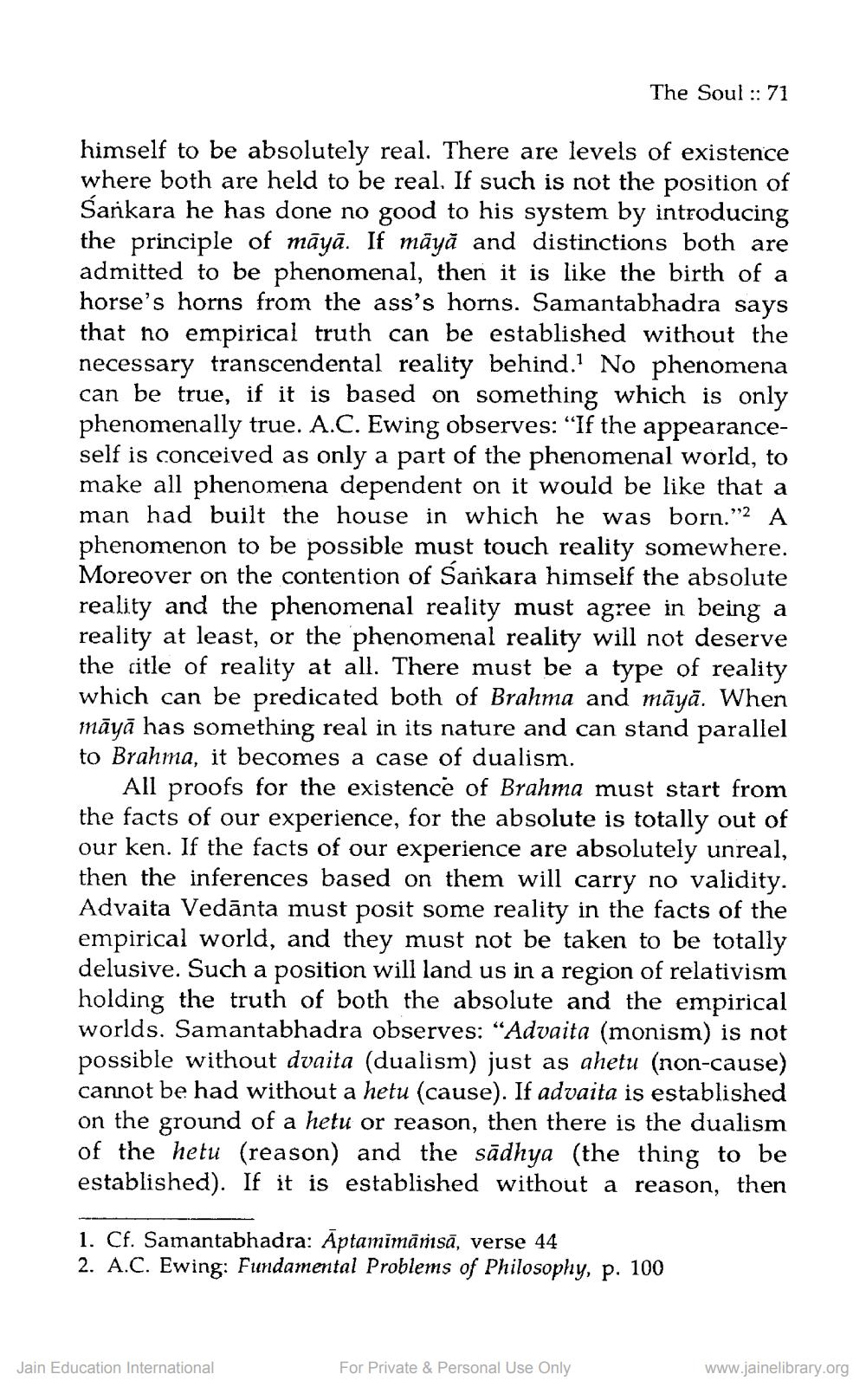________________
himself to be absolutely real. There are levels of existence where both are held to be real. If such is not the position of Sankara he has done no good to his system by introducing the principle of māyā. If māyā and distinctions both are admitted to be phenomenal, then it is like the birth of a horse's horns from the ass's horns. Samantabhadra says that no empirical truth can be established without the necessary transcendental reality behind.1 No phenomena can be true, if it is based on something which is only phenomenally true. A.C. Ewing observes: "If the appearanceself is conceived as only a part of the phenomenal world, to make all phenomena dependent on it would be like that a man had built the house in which he was born."2 A phenomenon to be possible must touch reality somewhere. Moreover on the contention of Sankara himself the absolute reality and the phenomenal reality must agree in being a reality at least, or the phenomenal reality will not deserve the title of reality at all. There must be a type of reality which can be predicated both of Brahma and māyā. When māyā has something real in its nature and can stand parallel to Brahma, it becomes a case of dualism.
The Soul: 71
All proofs for the existence of Brahma must start from the facts of our experience, for the absolute is totally out of our ken. If the facts of our experience are absolutely unreal, then the inferences based on them will carry no validity. Advaita Vedānta must posit some reality in the facts of the empirical world, and they must not be taken to be totally delusive. Such a position will land us in a region of relativism holding the truth of both the absolute and the empirical worlds. Samantabhadra observes: "Advaita (monism) is not possible without dvaita (dualism) just as ahetu (non-cause) cannot be had without a hetu (cause). If advaita is established on the ground of a hetu or reason, then there is the dualism of the hetu (reason) and the sadhya (the thing to be established). If it is established without a reason, then
1. Cf. Samantabhadra: Aptamimāmsā, verse 44
2. A.C. Ewing: Fundamental Problems of Philosophy, p. 100
Jain Education International
For Private & Personal Use Only
www.jainelibrary.org




